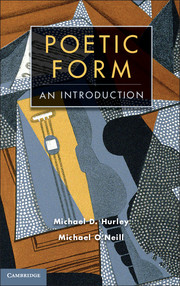Chapter 6 - Soliloquy
Published online by Cambridge University Press: 05 November 2012
Summary
Now I am alone
HamletSpeak of me as I am
OthelloOverview
This chapter explores the use of poetry in drama, and will focus mainly but not solely on Shakespearean and Renaissance drama, giving particular attention to the use of blank verse as a medium for soliloquy, on subsequent developments in Romantic poetry where the extended exploration of thought in long speeches leads to the emergence of the ‘dramatic poem’ (the subtitle of Byron’s Manfred) and on later attempts, notably that of Yeats, to revive the form of verse drama. The possibility of definitional overlap between this chapter and those on lyric and dramatic monologue is evident; indeed, it is embraced, in the spirit of this book’s understanding of the fluidity of generic categories. All three forms seek to express a speaker’s thought and feelings, with greater or lesser degrees of detachment.
‘My heart aches, and a drowsy numbness pains / My sense’; ‘But do not let us quarrel any more, / No, my Lucrezia’; ‘O world, thy slippery turns!’ The three openings come from a lyric, a dramatic monologue, a soliloquy. All three speak from the subject position of the ‘I’; Keats calls up a complex emotional state of ‘drowsy numbness’ that involves, as the cunningly positioned verb ‘pains’ brings out, a state of intensified awareness that borders on suffering; Robert Browning uses a measured pentameter that sidles into the soul of his ‘Faultless Painter’ (see the poem’s subtitle) to evoke Andrea del Sarto’s internalised sense of failure and self-thwarted constraint; Shakespeare gives Coriolanus a generalised idiom appropriate to a man whose moments of greatest understanding (as at the climax when he holds his mother’s hands and is persuaded by her not to burn Rome) seem to take place in silence. Each genre is in living contact with the others.
- Type
- Chapter
- Information
- Poetic Form , pp. 145 - 166Publisher: Cambridge University PressPrint publication year: 2012

